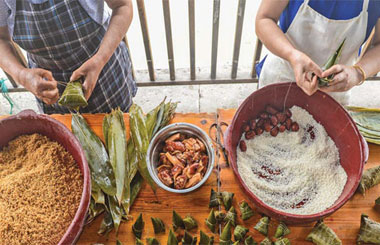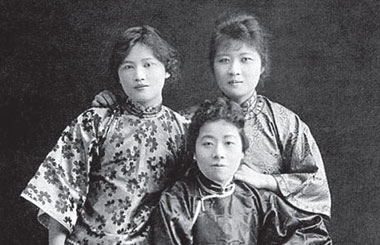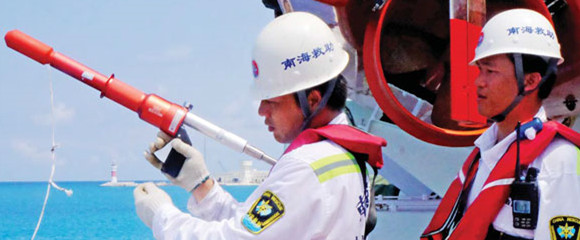Across China: "Space lotus" farming takes off in Central China
Updated: 2016-06-03 17:32
(Xinhua)
|
|||||||||
CHANGSHA - Farmers in Central China are reaping success with a type of lotus grown from seeds carried into space by Chinese astronauts in experiments designed to increase their yield.
Growing of "space lotus" has been pioneered by Li Baocheng, who has planted and helped others to plant 5,000 mu (333 hectares) of land in Shaoyang, Hunan province, with the aquatic perennial.
Lotuses produce stunning flowers above the shallow water they grow in and delicious, edible roots below. Their seeds are particularly prized as a food and for their use in herbal medicine. Li's crop on 150 mu attracts tourists to stay in his guesthouse in Shaoyang's Dongfeng village.
It all started in 2004, when Li heard about space lotus from a chef friend. The chef told him that the product could make him more money than Li's usual crop, potatoes.
A state-backed project saw the seeds taken into space aboard satellites and spaceships in the mid-1990s. Vacuum and microgravity conditions transformed them, according to the scientists behind the project.
In 2005, Li gave a wholesaler 5,000 yuan ($756) for 65 seedlings, which covered just one mu. While growing the lotus, he raised loaches, carp and mudsnails in the surrounding water. The lotus and aquatic products generated more than 15,000 yuan at the end of the year.
By day, guests at Li's inn gorge on the visual feast of the flowers, and at night they dine on lotus and fish from the same fields.
"Even my wife, who was unemployed, began to get very busy dealing with the tourists," Li said.
As his farm-tourism business started to take root, Li developed two other types of lotus based on the original strain. The new, late-maturing varieties helped prolong the flowering period from June to October, and kept the visitors coming.
"Each weekend, our village is so busy that there are often traffic jams on the country roads," said the 67-year-old.
Last year, he formed a rural cooperative in Dongfeng, bringing in extra business partners. He has also been selling seedlings to other parts of Shaoyang, charging 1,000 yuan for enough to cover one mu plus a small surcharge for technical support ("Just enough to cover the price of fuel.").
It is easy to see why lotus is a popular crop with farmers wanting to get the most profit out of the space at their disposal. Currently, a kilogram of potatoes sells for about three yuan, while a kilogram of lotus root sells for about twice as much. Lotus seeds are much more expensive, with each kilogram going for 60 yuan.
Shaoyang is famous for its Lotus Pond, the inspiration for ancient philosopher Zhou Dunyi's renowned essay "Ode to the Lotus Flower." But there was barely any lotus production there in the years before Li had his bright spark.
Now, space lotus has been planted in 11 regions of Shaoyang, and even in neighboring Hubei Province. Li expects the amount of farmland planted with space lotus in Hunan and Hubei to double in the near future.
"I hope the growth of the lotus can help everyone in Shaoyang who loves the beautiful flowers and enable local villagers to live better lives," he said.
Related Stories
A so-called 'space lotus' starts to bloom in the lake of Beijing's Beihai Park yesterday. The lilies received their name after their seeds were developed in a man-made satellited in outer space. A 2002-07-22 15:40
Lotus ready to welcome visitors in Zhanjiang 2016-05-27 10:30
Lotus flowers bloom on Baiyang Lake, Hebei province 2016-05-15 11:41
Lotus brings pure driving to motorsport festival 2015-11-30 11:14
Geometric figures formed by lotus stems seen at botanic garden in E China 2016-01-11 16:02
Lotus Feet Museum 2015-11-06 17:39
Today's Top News
Eyeing the goal in European football
Suddenly, it's a small world
China looking forward to trade talks with EEU: MOC
Russia to promote EAEU-China economic cooperation
AIIB 'set to earn international trust, credibility'
EIB and AIIB to strengthen cooperation
Some 13,000 migrants saved, over 700 dead
Economists urge go-slow on EU's anti-dumping
Hot Topics
Lunar probe , China growth forecasts, Emission rules get tougher, China seen through 'colored lens', International board,
Editor's Picks

|

|

|

|

|

|







